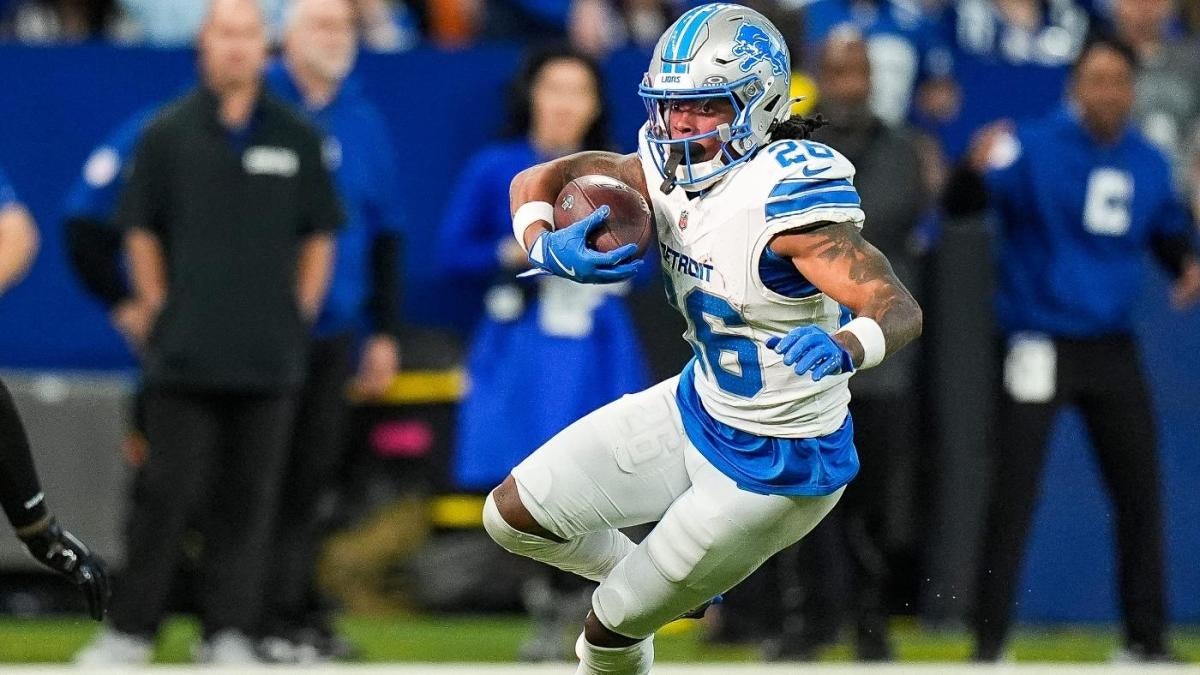Navigating Change: The Detroit Lions’ Offensive Outlook for 2025
Change in leadership often brings uncertainty, especially in high-stakes realms like the NFL. The Detroit Lions’ 2025 season faces such a transition with the departure of Ben Johnson, their innovative offensive coordinator, whose creative vision propelled the team to elite scoring ranks. His successor, John Morton, steps in with a promise of continuity infused with subtle innovation. This blend of stability and evolution shapes the narrative surrounding the Lions’ offensive future, their quarterback Jared Goff’s role, and the roster’s adaptability.
Preserving Success: Morton’s Offensive Philosophy
John Morton’s approach hinges on the belief that the Lions’ offense is fundamentally sound. His tenure with the team and experience in Denver under Sean Payton contribute to a philosophy that values flexibility, creativity, and respect for established frameworks. Rather than dismantle Johnson’s system, Morton opts for refinement, applying “wrinkles”—small tactical adjustments designed to enhance without destabilizing.
This deliberate continuity serves multiple strategic interests. Players avoid the steep learning curve often associated with new systems, maintaining confidence and rhythm. Meanwhile, the offensive identity remains recognizable but subtly enhanced, reflecting an understanding that rapid upheavals can erode team chemistry and consistency.
Jared Goff: Stability’s Keystone
At the center of this offensive steadiness is quarterback Jared Goff. His comfort and confidence in Morton’s system are integral to its success. Having worked with Morton during the previous season, Goff’s familiarity paves the way for a smooth transition. Morton’s respect for Goff’s strengths ensures that the offensive schemes play to the quarterback’s skill set, emphasizing rhythm and timing that have been pillars of Detroit’s offense.
The quarterback’s continued role as the offensive fulcrum suggests that Morton’s tweaks will harmonize with Goff’s established command rather than disrupt it. This alignment is crucial; any significant change at the quarterback’s level risks unsettling the entire offense.
Player Dynamics: Opportunities and Challenges
Morton’s arrival signals a nuanced reshuffling for other offensive players. The culture Morton promotes—rooted in flexibility and tactical discretion—means that individual talents will shape playcalling and alignments. Players demonstrating adaptability and high performance can expect to thrive, benefiting from the system’s stability coupled with its strategic flexibility.
Conversely, those less aligned with Morton’s vision might find themselves marginalized. With subtle shifts in personnel fits and responsibilities, internal competition will intensify, influencing team cohesion and identity. Morton’s task includes managing these dynamics to sustain both performance and morale.
The Shadow of Ben Johnson: A Balancing Act
Filling Ben Johnson’s role is no small feat. Johnson’s creative imprint transformed Detroit’s offense, elevating it to national prominence. Morton acknowledges this legacy without feeling compelled to imitate it completely. His emphasis on a measured path between respect for past success and his own subtle adjustments reflects an understanding of the delicate balance between innovation and continuity in the NFL’s fast-paced environment.
This approach favors stability, suggesting Morton values incremental progress over risky radical change, which could disrupt the chemistry painstakingly built under Johnson.
Retaining Creativity Amid Stability
Despite the focus on continuity, Morton assures that creativity will not be sacrificed. The promise to retain “trick plays and creativity” preserves an element of unpredictability essential in keeping defenses off balance and engaging fans.
This creative latitude complements the strategic underpinnings of the offense, ensuring that while the core remains consistent and efficient, the Lions can still employ smart, adaptive strategies tailored to in-game circumstances and personnel matchups.
Shaping the Offensive Identity and Expectations
The Lions’ offensive future under Morton appears to be one of thoughtful preservation blended with strategic evolution. Instead of a full overhaul, the offense is poised for fine-tuning—building incrementally on strengths forged in recent seasons.
Expectations are tempered accordingly. Though immediate replication of Johnson’s peak achievements is unlikely, a significant decline also appears improbable. The offense promises resilience, adaptability, and steady development, rooted in a system both familiar and subtly refreshed.
Conclusion: Embracing Evolution Through Strategic Patience
The 2025 season ushers in an era defined by strategic patience for the Detroit Lions. John Morton’s stewardship emphasizes respect for the past—honoring Ben Johnson’s creative foundation—while gently guiding subtle changes designed to sustain and advance offensive performance.
By maintaining Jared Goff’s integral leadership role and fostering an environment that rewards adaptability and strategic creativity, Morton charts a prudent course that prioritizes stability without sacrificing innovation.
Rather than reinventing the wheel, Morton’s task is to fine-tune a fast-spinning machine—a role that demands vision and humility. Under his guidance, the Lions’ offense is well-positioned to remain dynamic, player-focused, and fundamentally solid as Detroit aims to build on its recent offensive achievements. The path ahead is one of evolution balanced with continuity, promising not just survival but thoughtful growth in a competitive NFL landscape.

